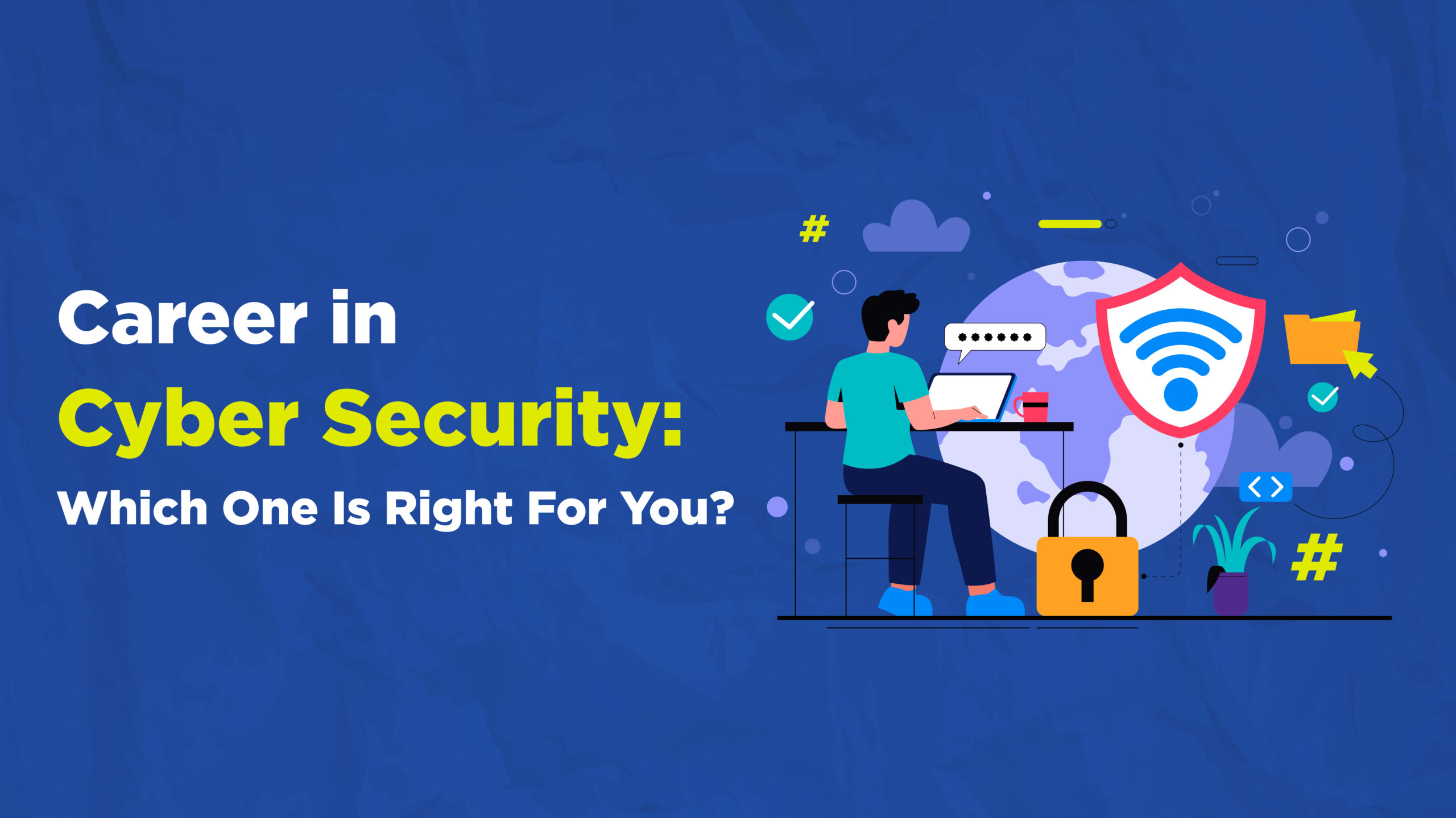Career in Cybersecurity: Which One Is Right For You?
The amazing things we can do online thanks to technology come with a bit of a downside – it’s like having a giant open door for criminals. AI experts would say the digital age is super useful and innovative, but it’s also created a lot of ways for bad guys to cause trouble. The global cost of cybercrime is estimated to reach a staggering $10.5 trillion by 2025 according to Digital Defense Report, highlighting the critical need for skilled cybersecurity professionals. Do you love tech and get a kick out of solving puzzles? Maybe fighting cybercrime sounds super cool! If so, cybersecurity might be your dream job! This guide will help you with the knowledge and steps to build a fulfilling and exciting career safeguarding the digital frontier. Step 1: The Foundations – Building Your Knowledge Base Essential IT Concepts: Operating Systems: Master the fundamentals of operating systems like Windows (used by over 80% of personal computers globally and Linux (powering critical infrastructure like servers). Understanding how these systems function is essential for identifying and mitigating security vulnerabilities. Networking Fundamentals: Delve into the intricacies of networks, including the TCP/IP protocol (the language computers use to communicate) and different network topologies (like bus and star networks). Mastering these concepts will allow you to build and secure robust network infrastructures. Data Storage Solutions: Keeping your business information safe is like having a good lock on your house. Just like there are different types of locks, there are different ways to store data. Relational databases are like filing cabinets – they keep things organized and secure, but they might not be the best fit for everything. To make sure your data is protected, it’s important to understand how it’s stored and accessed. This will help you choose the right security measures, just like picking the right lock for your needs. Learning Resources: Numerous online resources, courses (offered by platforms like Skolar), and certifications like CompTIA A+ can provide this foundational knowledge. Step 2: Mastering Core Security Skills Network Security: Learn the art of building firewalls, which act as gatekeepers to your network, filtering incoming traffic and preventing unauthorized access. Imagine a digital watchdog for your network. That’s basically what an Intrusion Detection System (IDS) is. It runs day and night, keeping a close eye on all the traffic flowing through your network. If it sees anything strange or suspicious, it’ll sound the alarm and let your security team know right away. This helps them identify potential threats before they can cause any damage. Think of it as having an extra pair of eyes (made of ones and zeroes) on your network, looking out for your security. Ethical Hacking: the mindset of an ethical hacker, learning to identify and exploit vulnerabilities in systems before malicious actors do. This proactive approach, known as penetration testing, helps organizations patch these vulnerabilities and strengthen their defenses. Programming Languages: Programming languages like Python and scripting languages like PowerShell will become your tools of the trade. This can automate repetitive tasks, sift through mountains of data to uncover hidden threats, and even build custom tools to keep things safe. Step 3: Choosing Your Path – Specialization in Cybersecurity The beauty of cybersecurity lies in its diverse career paths. Here are some exciting options to explore: Incident Response: Become a front-line warrior, leading the charge in containing and mitigating security breaches. You’ll analyze security incidents, collect evidence, and work to restore compromised systems. Digital Forensics: Step into the shoes of a meticulous investigator, gathering and analyzing digital evidence following a cybercrime. Your expertise will be crucial in piecing together the puzzle and holding attackers accountable. Security Engineering: Become the architect of secure systems, designing and implementing robust defense mechanisms. You’ll stay ahead of evolving threats, constantly innovating and fortifying the digital infrastructure of organizations. Security Consultant: You can be your secret weapon, helping you assess your current defenses, pinpoint weaknesses, and put in place the best security controls to keep the bad guys out. Think of me as your personal security guru, using my smarts to make your organization a fortress! Step 4: Certifications and Experience While formal education is valuable, practical experience reigns supreme in the world of cybersecurity: Internships and Entry-Level Positions: Seek opportunities to gain hands-on experience by participating in internships or entry-level cybersecurity positions. Working alongside seasoned professionals will provide invaluable mentorship and real-world exposure. Industry Certifications: Earning industry-recognized certifications like Certified Ethical Hacker (CEH) or Certified Information Systems Security Professional (CISSP) validates your expertise and opens doors to new career opportunities. These certifications demonstrate your knowledge and commitment to the field. Continuous Learning: Cybersecurity is a dynamic field that constantly evolves. Level up your tech defense! Stay on top of the newest tricks hackers use and the coolest tech advancements by going to workshops, joining online tech groups, and keeping your skills sharp. Step 5: Entering into Your Cybersecurity Career Launch It’s time to showcase your skills and embark on your exciting career journey! Craft a Compelling Resume: Highlight relevant coursework, certifications, projects, and any hands-on experience you’ve gained through internships or volunteer work. Showcase your technical skills and tailor your resume to specific cybersecurity job descriptions. Network and Build Relationships: Connect with professionals in the field through online communities, attending industry events, or joining cybersecurity meetups. Building relationships with experienced individuals can provide valuable mentorship and open doors to potential job opportunities. Utilize platforms like LinkedIn to connect with professionals and showcase your expertise. Showcase Your Passion: Let your enthusiasm for cybersecurity shine through! Your passion and dedication will be evident during interviews and can make you a standout candidate. Rewarding and Fulfilling Journey Cybersecurity isn’t just about punching a clock, it’s about being a knight in shining armor for the digital world! It’s tough and ever-changing, but there’s no better feeling than stopping cyberattacks, protecting important info, and making the internet a safer place. Plus, the cybersecurity folks are like a big family, always there to help you out and learn new … Read more

